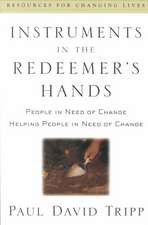Religions as Brands: New Perspectives on the Marketization of Religion and Spirituality: AHRC/ESRC Religion and Society Series
Editat de Jean-Claude Usunier, Jörg Stolzen Limba Engleză Hardback – 28 dec 2013
| Toate formatele și edițiile | Preț | Express |
|---|---|---|
| Paperback (1) | 427.37 lei 6-8 săpt. | |
| Taylor & Francis – 12 feb 2018 | 427.37 lei 6-8 săpt. | |
| Hardback (1) | 1093.65 lei 6-8 săpt. | |
| Taylor & Francis – 28 dec 2013 | 1093.65 lei 6-8 săpt. |
Din seria AHRC/ESRC Religion and Society Series
-
 Preț: 459.90 lei
Preț: 459.90 lei -
 Preț: 371.47 lei
Preț: 371.47 lei -
 Preț: 441.71 lei
Preț: 441.71 lei - 12%
 Preț: 327.09 lei
Preț: 327.09 lei -
 Preț: 459.90 lei
Preț: 459.90 lei -
 Preț: 479.42 lei
Preț: 479.42 lei -
 Preț: 427.37 lei
Preț: 427.37 lei - 13%
 Preț: 322.50 lei
Preț: 322.50 lei -
 Preț: 459.90 lei
Preț: 459.90 lei -
 Preț: 440.39 lei
Preț: 440.39 lei -
 Preț: 381.57 lei
Preț: 381.57 lei -
 Preț: 440.39 lei
Preț: 440.39 lei -
 Preț: 446.88 lei
Preț: 446.88 lei -
 Preț: 457.09 lei
Preț: 457.09 lei - 26%
 Preț: 848.85 lei
Preț: 848.85 lei - 18%
 Preț: 984.63 lei
Preț: 984.63 lei - 17%
 Preț: 258.09 lei
Preț: 258.09 lei
Preț: 1093.65 lei
Preț vechi: 1333.72 lei
-18% Nou
Puncte Express: 1640
Preț estimativ în valută:
209.32€ • 217.58$ • 173.39£
209.32€ • 217.58$ • 173.39£
Carte tipărită la comandă
Livrare economică 05-19 februarie 25
Preluare comenzi: 021 569.72.76
Specificații
ISBN-13: 9781409467557
ISBN-10: 1409467554
Pagini: 276
Dimensiuni: 156 x 234 x 18 mm
Greutate: 0.66 kg
Ediția:New.
Editura: Taylor & Francis
Colecția Routledge
Seria AHRC/ESRC Religion and Society Series
Locul publicării:Oxford, United Kingdom
ISBN-10: 1409467554
Pagini: 276
Dimensiuni: 156 x 234 x 18 mm
Greutate: 0.66 kg
Ediția:New.
Editura: Taylor & Francis
Colecția Routledge
Seria AHRC/ESRC Religion and Society Series
Locul publicării:Oxford, United Kingdom
Cuprins
PART I: Introduction 1 Religions as Brands: New Perspectives on the Marketization of Religion and Spirituality
Jörg Stolz and Jean-Claude Usunier 2 "9591": The Global Commoditization of Religions through GATS, WTO, and Marketing Practices Jean-Claude Usunier PART II: Marketing and Branding Religion and Spirituality 3 The International Christian Fellowship (ICF): A Sociological Analysis of Religious Event Management Olivier Favre 4 Branding, Music, and Religion: Standardization and Adaptation in the Experience of the "Hillsong Sound" Thomas Wagner 5 The Marketing of Spiritual Services and the Role of the Religious Entrepreneur Markus Hero 6 Non-fortuitous Limits to the Concept of Branding in the Popularizing of "Justly Balanced Islam" in France Jason Dean 7 Healing by Islam: Adoption of a Prophetic Rite—roqya—by Salafists in France and Belgium Hanifa Touag PART III: Religious and Spiritual Consuming 8 Adding Imaginative Value: Religion, Marketing, and the Commodification of Social Action Jochen Hirschle 9 Is There Such a Thing as Religious Brand Loyalty? Haytham Siala 10 How Religious Affiliation Grouping Influences Sustainable Consumer Behavior Findings Elizabeth Stickel-Minton PART IV: Economic Analyses of Religious Phenomena 11 Sources of Religious Pluralism: Revisiting the Relationship between Pluralism and Participation Roger Finke and Christopher P. Scheitle 12 Authority and Freedom: Economics and Secularization Steve Bruce 13 The "Business Model" of the Temple of Jerusalem: Jewish Monotheism as a Unique Selling Proposition Philippe Simonnot
Jörg Stolz and Jean-Claude Usunier 2 "9591": The Global Commoditization of Religions through GATS, WTO, and Marketing Practices Jean-Claude Usunier PART II: Marketing and Branding Religion and Spirituality 3 The International Christian Fellowship (ICF): A Sociological Analysis of Religious Event Management Olivier Favre 4 Branding, Music, and Religion: Standardization and Adaptation in the Experience of the "Hillsong Sound" Thomas Wagner 5 The Marketing of Spiritual Services and the Role of the Religious Entrepreneur Markus Hero 6 Non-fortuitous Limits to the Concept of Branding in the Popularizing of "Justly Balanced Islam" in France Jason Dean 7 Healing by Islam: Adoption of a Prophetic Rite—roqya—by Salafists in France and Belgium Hanifa Touag PART III: Religious and Spiritual Consuming 8 Adding Imaginative Value: Religion, Marketing, and the Commodification of Social Action Jochen Hirschle 9 Is There Such a Thing as Religious Brand Loyalty? Haytham Siala 10 How Religious Affiliation Grouping Influences Sustainable Consumer Behavior Findings Elizabeth Stickel-Minton PART IV: Economic Analyses of Religious Phenomena 11 Sources of Religious Pluralism: Revisiting the Relationship between Pluralism and Participation Roger Finke and Christopher P. Scheitle 12 Authority and Freedom: Economics and Secularization Steve Bruce 13 The "Business Model" of the Temple of Jerusalem: Jewish Monotheism as a Unique Selling Proposition Philippe Simonnot
Notă biografică
Jean-Claude Usunier is professor at the University of Lausanne, Switzerland, in the Faculty of Business and Economics (HEC). His research interests are cross-cultural consumer behavior, cultural and linguistic aspects of international marketing, with a special interest in commoditization processes in international trade. He serves on the editorial board of several international business and marketing journals. His recent research was published in International Journal of Research in Marketing, Journal of Research in Personality, Time and Society, Journal of International Marketing, International Journal of Electronic Commerce, Journal of Business Communication, and European Journal of Marketing. His books include International and Cross-Cultural management Research (Sage, 1998), International Business Negotiations (Elsevier, 2003), AIDS and Business (Routledge, 2009), and Marketing Across Cultures (Pearson, 2009). Jörg Stolz is Professor of Sociology of Religion at the University of Lausanne. His research focuses on the explanation of secularization, the competition between the religious and the secular, evangelicalism, stereotypes, and religious pluralism with the theory of social mechanisms (analytical sociology). Concerning methods, he is especially interested in mixed methods research. He is president-elect of the International Society for the Sociology of Religion. He is the author of Soziologie der Fremdenfeindlichkeit: Theoretische und empirische Analysen and L'avenir des Réformés: Les Eglises face aux changements sociaux (with Edmée Ballif), and has edited the book Salvation goods and religious markets: Theory and Applications. He has published in various international journals such as the British Journal of Sociology, Sociology of Religion, or Review of Religious Research.
Recenzii
'... brings together a wealth of sociological and marketing research and theory and research on the way that religions are forced to market themselves in order to be attractive to consumers.' Religion Watch 'Recommended.' Choice 'For anyone interested in understanding the marketplace in which the Church now finds itself, this collection of well researched essays will undoubtedly be highly informative.' Modern Believing
Descriere
During the twentieth century, religion has gone on the market place. Churches and religious groups are forced to 'sell god' in order to be attractive to 'religious consumers'. More and more, religions are seen as 'brands' that have to be recognizable to their members and the general public. This interdisciplinary book treats new developments in three fields that have hitherto evolved rather independently: (1) the commoditization of religion, (2) the link between religion and consumer behaviour, and (3) the economics of religion.















